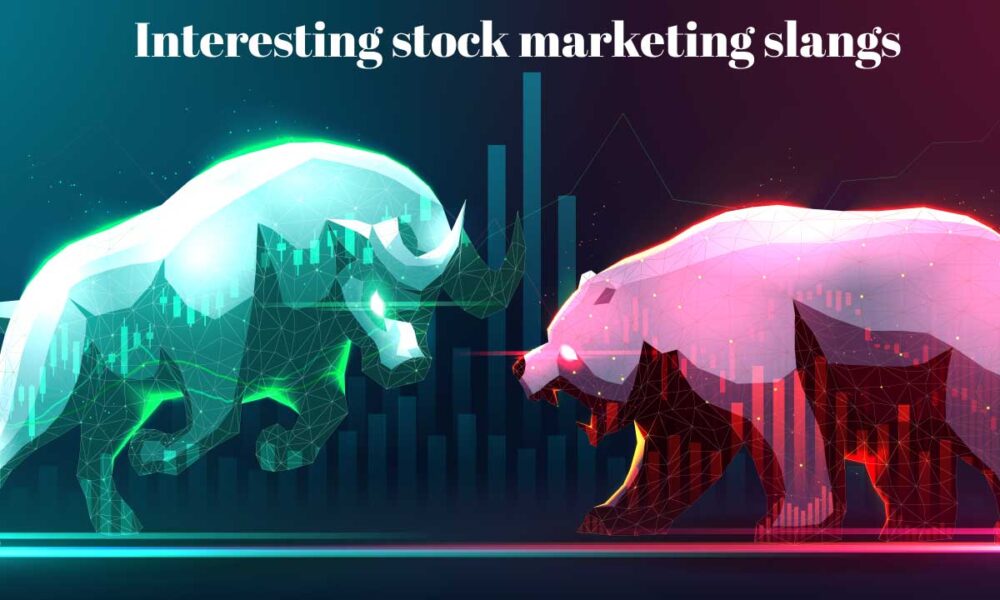Interesting stock marketing slangs
Here are some interesting stock market slags that are used by stock marketers.
How many of these slags did you actually know?? Let’s explore these.
Bulls
Bulls used to explicitly relate to a market with an upward trend and a growth cycle, but they can now simply refer to an upbeat speculator who frequently makes long trades. Although there is no concrete evidence to support this, some people think that bull markets earned their name from the way bulls throw their enemies and spike their horns high.
Bears
A bear market, often known as a depressed and/or downward-trending market, is the opposite of a bull market. Similarly, a bullish trader or investor has optimistic views about a market, while bearish ones are gloomy.
White swans
Black swans, a phrase that has gained in use after Brexit, refer to an entirely unexpected and unforeseeable position. Black swans are as important as they are unexpected, and they must have a major influence on the market—often a negative one. The dot com bubble explosion in the 1990s and the world financial crisis of 2008 are two well-known examples of black swan events.
Whales
Whales are market movers and shakers with so much capital that their purchases and sales cause commotion in the marketplace in a way that only enormous animals can.
Unicorns
Startups that have grown to be valued at $1 billion or more are known as unicorns, one of the most recent words used here. Some people might cynically speculate that they were given their unusual names since it is impossible to ever find one.
Tigers
As one of the few words derived from an acronym, TIGR, or Treasury Investors Growth Receipt, tigers are unique. In the 1980s, Merrill Lynch bank developed and copyrighted this kind of Treasury bond. Although now mostly out of date, TIGRs were formerly well-liked because owners of “tiger” bonds were exempt from paying interest or taxes.
Fading
a trader who consciously veers away from trends or market sentiment. It is typically not advised for anyone other than the most seasoned market movers since, as traders like to say, “the trend is your friend.”
Inflate and dump
The unethical market manipulators employ the “pump and dump” strategy. By using techniques like bogus news, recommendations, and raving evaluations on a stock that they themselves have planted or created, they profit from a market’s upward trend. This is fraud, not a trading method. Fraudsters are imprisoned.

